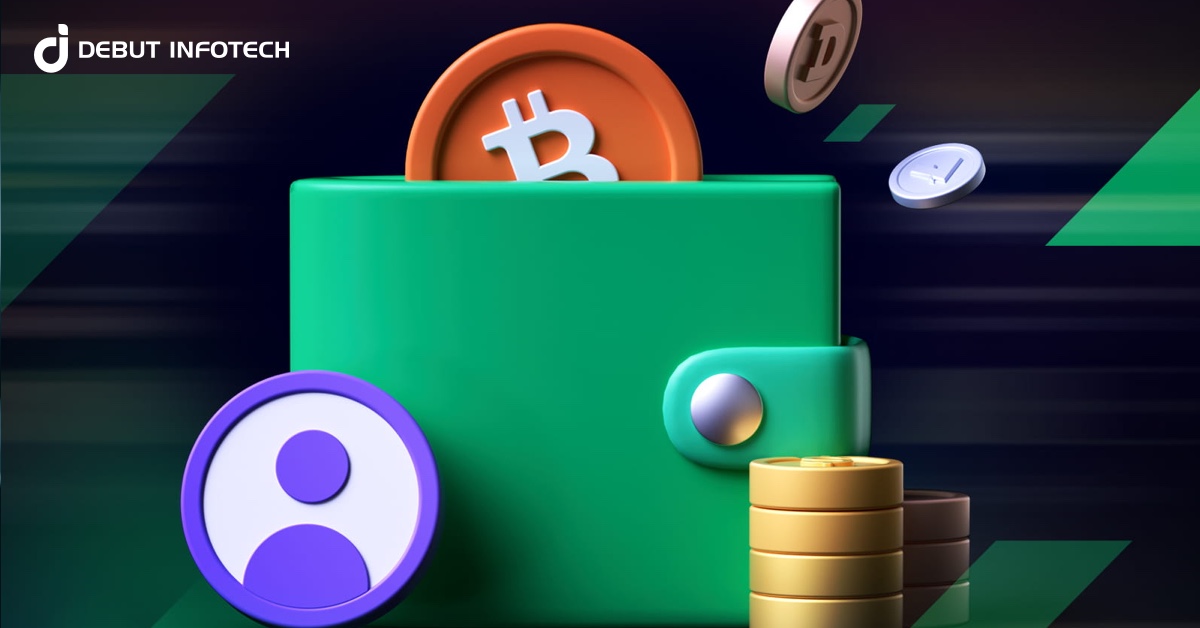In the rapidly evolving world of cryptocurrencies and blockchain technology, decentralized wallets have become a key tool for managing digital assets. Unlike traditional wallets hosted on centralized platforms, decentralized wallets provide users with direct control over their funds and private keys. This empowers individuals with enhanced security, privacy, and autonomy, eliminating the need to rely on intermediaries. As decentralized finance (DeFi) and blockchain-based solutions gain momentum, decentralized wallets are playing a crucial role in driving the shift toward a more decentralized and secure financial ecosystem.
What Are Decentralized Wallets?
A decentralized wallets is a digital wallet that operates on a blockchain without relying on a central authority or intermediary to manage transactions. The defining characteristic of these wallets is that they provide users with complete control over their private keys, which are cryptographic codes required to access and manage their digital assets. In contrast, centralized wallets, such as those provided by exchanges, store private keys on behalf of users, which exposes them to risks like hacking and loss of funds due to third-party control.
Decentralized wallets allow users to interact with decentralized applications (dApps), trade tokens, and manage their portfolios without having to trust a central authority. These wallets are typically non-custodial, meaning that the wallet provider does not have access to the user’s private keys or funds.
Key Benefits of Decentralized Wallets
- Enhanced Security
One of the main advantages of decentralized wallets is enhanced security. Since users have complete control over their private keys, they are the sole custodians of their digital assets. This eliminates the risk of hacking associated with centralized wallets, where exchanges or third-party platforms store user funds. If a centralized exchange is compromised, users risk losing their assets. With decentralized wallets, users are not exposed to this vulnerability, ensuring greater peace of mind when managing their crypto holdings.
- Increased Privacy
Decentralized wallets also offer greater privacy compared to their centralized counterparts. Since there is no intermediary involved, users do not need to provide personal information or undergo KYC (Know Your Customer) processes to create or use the wallet. This enhances anonymity and privacy for users who prefer to keep their identity separate from their financial activities.
- Full Control of Assets
With decentralized wallet, users have complete ownership and control of their digital assets. They are not dependent on any third party to access, send, or receive funds. In the world of centralized wallets, there is always a possibility of withdrawal restrictions or platform downtimes that can limit access to assets. Decentralized wallets remove these barriers by allowing users to operate freely without interference from a centralized entity.
- Seamless Integration with DeFi
Decentralized wallets are integral to the decentralized finance (DeFi) ecosystem, enabling users to interact with decentralized exchanges (DEXs), lending platforms, yield farming protocols, and other dApps. By using decentralized wallets, users can participate in DeFi activities without leaving the safety of their wallets or compromising their private keys. This creates a seamless and user-friendly experience for those looking to engage with DeFi protocols while maintaining full control over their funds.
- Cross-Platform Compatibility
Many decentralized wallets are designed to be cross-platform, meaning they can be accessed from various devices, including desktops, smartphones, and browser extensions. This flexibility allows users to manage their assets from anywhere and at any time, providing convenience while ensuring security. Popular decentralized wallets like MetaMask, Trust Wallet, and Ledger offer mobile and desktop versions, making it easier for users to stay connected to the blockchain ecosystem.
Challenges of Decentralized Cryptocurrency Wallets
While decentralized cryptocurrency wallets decentralized cryptocurrency wallets offer numerous advantages, they also come with some challenges. The responsibility of managing private keys falls entirely on the user. If a user loses their private key or seed phrase, they will permanently lose access to their funds, as there is no central authority to recover the account. This makes private key management a crucial aspect of using decentralized wallets.
Additionally, the user interface of some decentralized wallets can be complex for beginners, creating a learning curve for those unfamiliar with blockchain technology. However, as blockchain adoption increases, wallet developers are working on simplifying interfaces to make decentralized wallets more accessible to mainstream users.
Conclusion
Decentralized wallets represent a significant advancement in how digital assets are managed, offering users enhanced security, privacy, and control. As the blockchain space continues to grow and DeFi solutions expand, decentralized wallets are poised to become even more important for individuals seeking a secure and autonomous way to manage their digital assets. While they require users to take full responsibility for their private keys, the benefits of decentralized wallets far outweigh the risks for those who value control and security in the world of cryptocurrencies. As the demand for decentralized solutions increases, decentralized wallets will likely play a pivotal role in the future of digital finance.






Comments